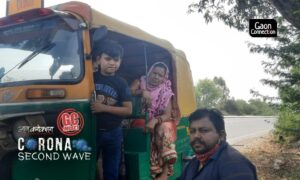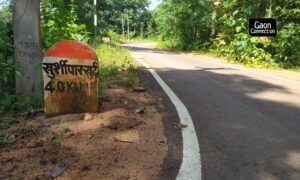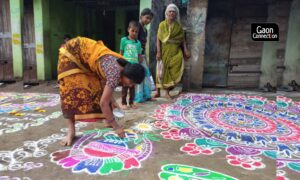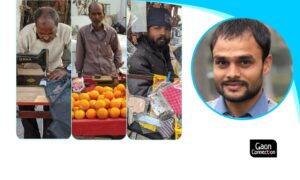Lalitpur (Uttar Pradesh)
While the whole country is dealing with the coronavirus pandemic, there are many who are trying to contribute to this fight against the tiny virus. A few women from Bundelkhand are doing their bit by making face masks.
What makes this story unique is that the Bundelkhand region, spread over 70,000 sq km in 13 districts of Uttar Pradesh and Madhya Pradesh, has been blighted by continuous drought and deficit rain from 2005 until now. There are very few employment opportunities in the region and because of frequent droughts, the farmers, and also the women — who often have to walk long distances to fetch water — have been suffering. People in the rural pockets of the region often struggle to meet ends, and in such a scenario, if they are doing their bit by making and distributing masks, that’s incredible.
Rasika, 42, the secretary of the Bharat Mata Self-Help Group, lives in Silgan village, which is seven kms away from the Lalitpur district in Uttar Pradesh. The self-help group helps women in the region earn a living by teaching them sewing work. However, after the announcement of the nationwide lockdown, the work had come to a standstill.
The group had Rs 15,000 in its account. So Rasika, with the help of women working in her self-help group, thought of making masks and distributing them. She said: “Initially, about 300 masks were distributed free of cost to the poor people in the village who belong to the Sahariya tribe. They can’t afford to buy masks. More than 200 masks were handed over to the development department officials.”
Looking at the quality of masks made by the group, the district administration, under the Ajeevika Mission, gave the task of making masks to 60 self-help groups in six blocks in the region. Rasika’s self-help group was given the task of making a hundred masks at home, and a committee has been formed to monitor the same.
Rasika, and other women from the self-help group are ecstatic after receiving raw material from the administration to make masks. Rasika said: “We were sitting idle, and now we have got the job of making masks. The officers encouraged us to make more masks and assured that we wouldn’t even need to step out to sell them for they would be bought from us by the officials. They would send us Rs 4 per mask directly to our bank accounts.”
She added: “It is vital to wear masks in order to avoid corona infection. Women belonging to self-help groups in these rural areas are thus playing an important role. Also, they are happy to be employed during the existing crisis.”
Talking about the help extended by the district administration by providing raw material to these self-help groups, Lalitpur’s deputy commissioner, Indramani Tripathi, said: “The corona crisis has led to an economic crisis for these women belonging to self-help groups. This way they will be able to get some financial help by making masks at home for which 3,800 metres of cloth has been provided to the groups. Now, two lakh masks are being made by the group. The money will be deposited in their accounts at the rate of Rs 4 per mask.”
The women are happy that by making masks they are doing their bit for the country. Rani Pulaiya, 36, the head of Shankara Mata Self-Help Group, in Baansi village, 20 kms from Lalitpur, said: “Earlier, we were sitting idle and were worried as to how would we manage our household. We are poor people and we survive on daily wages. Since the task of sewing masks has been offered from the administration to the group, all members are making masks at their own homes. It takes five to six minutes to make a mask.”



















